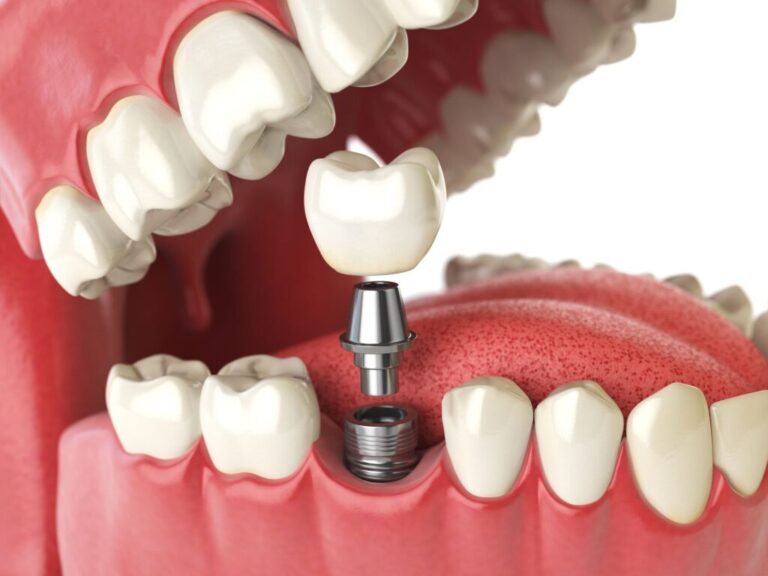Services
Book a dental appointment
Instead of calling, you can book an appointment with the dentist here
Start booking - choose the necessary dental treatment service, dentist and suitable visit time.
The advantages of implants compared to conventional dentures
The advantages of implants compared to conventional dentures (tooth crowns, bridges, removable dentures):
- Dental implants are fixed into the mouth.
- Implants are very similar to natural teeth in terms of appearance and function (eating, cleaning).
- To replace a missing tooth, there is no need to polish adjacent teeth (in case of replacing a tooth or teeth with a bridge, often healthy adjacent teeth must be polished; sometimes this requires root treatment of the supporting teeth of the bridge to be undertaken).
- Removing teeth usually causes changes in the dimensions of the jawbone. The biomechanical forces created during chewing that stimulate the natural renewal process of bone are not transferred to the jawbone. If implants are placed, the jawbone will get the necessary stimulation from the biomechanical forces to recreate itself constantly. It is important for aesthetic purposes and preserving a natural smile and face shape.

Dental implants suit to almost all patients with the exception of some contraindications, such as:
- Growing jaw bones: because an implant osseointegrates into the jaw, the procedure cannot be performed before the jaw bones have stopped growing (not suitable for people younger than 18 years of age).
- The oral cavity has to be healthy: all dental cavities, root inflammations and inflammations of the gum and attachment apparatus must be treated first. If implants are placed in the mouth of a patient that suffers from untreated periodontitis there is a very high risk that infection will spread from the gum pockets around the implant that may cause loss of bone and loss of the implant.
- Poor oral hygiene: before inserting an implant, home hygiene practices have to be reviewed with your dentist. Long-term success of a treatment depends on good oral hygiene and plaque control. After placing implants, the patient has to have regular check-ups and cleaning to assess the condition of the gums and the bone around the implant and prevent complications at earliest stages.
- General health condition: uncontrolled diabetes (greater risk of infection and poorer healing after the procedure); blood coagulation problems; certain bone tissue diseases; immunodeficiency; use of drugs.
- Smoking: smoking changes the body’s immunologic and inflammatory response and the studies have shown that compared to non-smokers smokers heal poorly after surgery and have a greater risk of loss of implants. Quitting smoking significantly increases the likelihood of a successful implant treatment.
Read more:
- What is a dental implant
- The advantages of dental implants compred to conventional dentures
- Who is suitable for dental implants
- Examination of a patient and planning treatment
- Planning treatment
- Complications of implantation
- Caring for dental implants at home
Read more about our other dental treatment services here.
Read more about oral health here.
